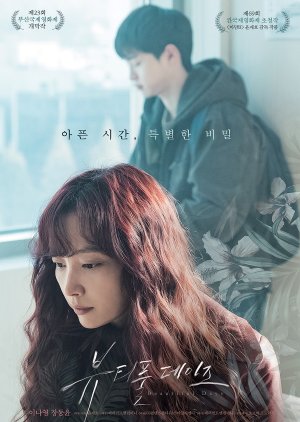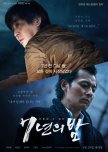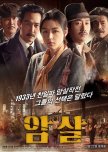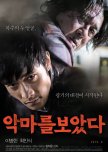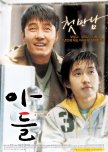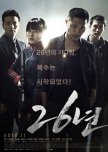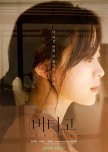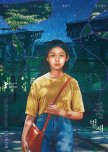
This review may contain spoilers
Intensive. Rough. Monosyllabic. If you don't let that put you off: Definitely worth seeing!
On average, every month (!) around 1,000 North Koreans flee to China in the hope of thus escaping hunger and persecution. Around 80 percent of the refugees are women. In many respects they are dependent on their unfamiliar environment - due to the uncertainty regarding residence law they practically live in a legal vacuum. Their fate all too often ends in the hands of smugglers and human traffickers who shamelessly exploit their insecure situation and ruthlessly make use of this for their own profit. The women are kept in brothels under slave-like conditions or forced into marriage. The bribes are increasing in view of tightened border controls. And unfortunately, China delivers all the refugees it identifies as such back to North Korea, where they then await torture and death. They live in constant fear of attacks, violence and deportation."Beautiful Days" tells the true story of a North Korean woman who makes it out of fear and dependency into an independent identity and a new life in South Korea. Her new life not rosy either, but it's free and self-determined.
Lee Na-young convinces here in a true-to-life and unembellished depiction of a bitter, merciless development process - from the abandoned teenager, who is forced into sex work and marriage, who is then threatened with taking her child away to sell it, and then despite all the hopelessness, persistently and unswervingly manages to escape her pimp, emancipate herself and earn enough money as an independent woman to support her family in China from afar.
By the way: In "Beautiful Days" there are actually no "beautiful" days. The title is pure irony. Dialogues are minimized. There is hardly any room for closeness and tenderness in this rough, monosyllabic world. The few loving gestures can practically be counted on one hand, but their effect is thus even stronger.
Intensive. Rough. If you don't let that put you off: Definitely worth seeing!
Was this review helpful to you?

The cinematography is dark and melancholic, reflecting the mood of anger, guilt, sadness, and regret. The score embraces those same feelings.
JDY gives a good performance as the angry son, Zhen Chen, who travels from China to South Korea to find his mother due to his dying father's wish. What he finds only deepens his anger and resentment. Lee's mother shows restrained emotions, a woman who has long dealt with sacrifice and hardships. The story deepens when a disappointed Zhen Chen on the return trip home finds the diary his mother left him and her long buried secrets and his are slowly revealed.
The film dips into the overly dramatic waters on occasions, but never completely sinks into them. Though not for everyone, and not a perfect movie, I found the struggles of this mother and son compelling.
Was this review helpful to you?

~maybe I’m just picky and you’ll like it but *shrugs*
*mdl won’t let me submit review unless I write 500 characters so I’m writing this in the hope I’ve said enough*
*this is why I don’t write reviews*
*damn still not 500 characters*
*or is it*
Was this review helpful to you?

 1
1